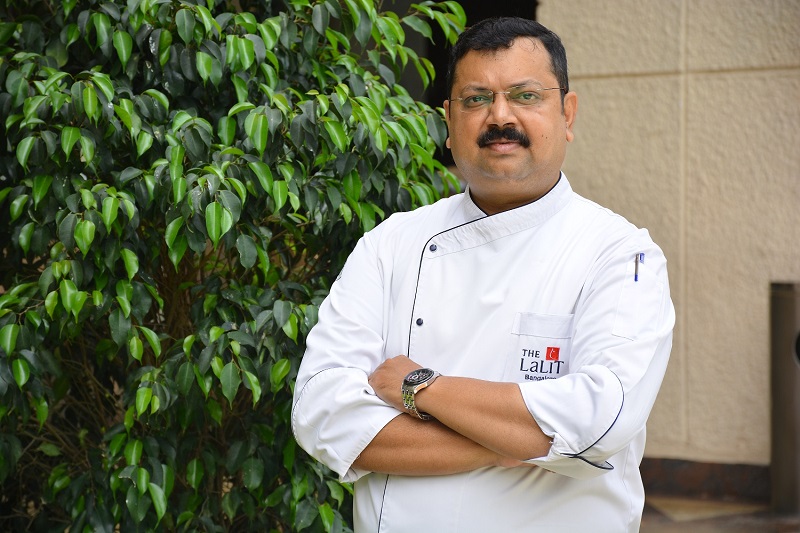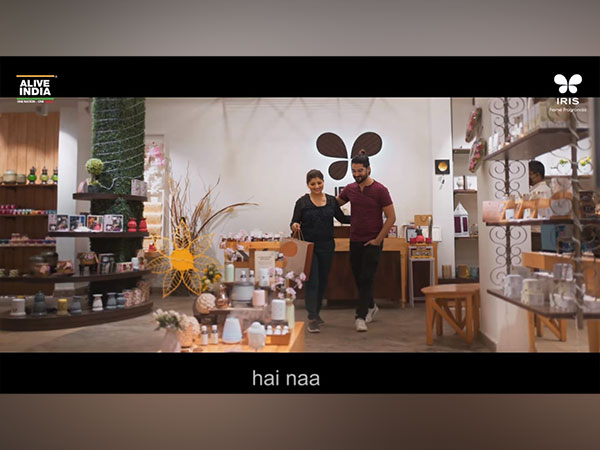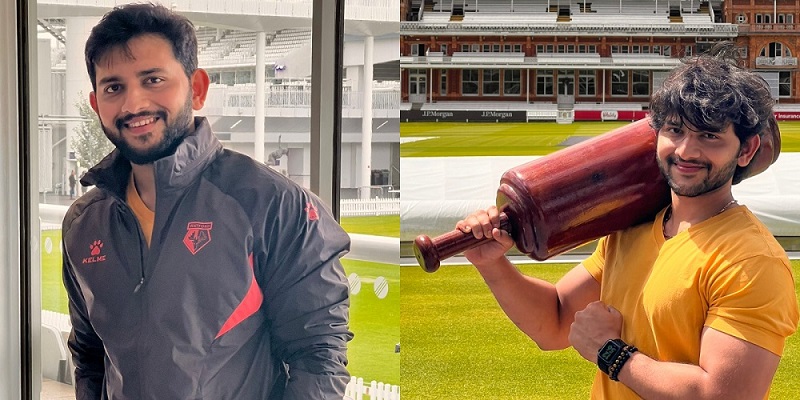1. What inspired you to choose a culinary journey as your profession.
To understand and experience the chemistry of transforming a simple ingredient and turning it into a delicacy that brings eternal satisfaction to the soul. It is a profession that gives more than enough opportunities to create and satiate many.
2. Food is ever evolving. What are the major changes you’ve seen in the last 25 years?
It all started from experiencing the further breakdown of generic cuisines, such as Continental broken down to Italian, French, Spanish, etc. and Oriental into Chinese, Thai, Japanese, Korean, etc.
Then came the days of glamorizing the cuisines by way of creative presentations. Followed by the era of introducing the lesser-known cuisines like Peruvian, Jamaican, Vietnamese, etc.
Then the age of Modernization wherein the Molecular Gastronomy coupled with progressive depiction of cuisines were the in thing and now it’s the time of Conceptual dining, and the saga continues…

3. What changes are you expecting in the food industry in 5 years?
With an immense pressure on health aspect due to the challenging lifestyle disorders and the pandemic, people are focusing back to the basics with simpler traditional recipes. There is a lot of emphasis on sustainability and Chefs are unearthing the age-old recipes and cooking techniques that were forgotten over the ages. Plant base alternatives are knocking at the door. Simple, wholesome, nutritious and sustainable is the mantra for future.
4. What interests you about working for The Lalit?
A forum to express your culinary imagination, a level field to play your shots and the F&B centric atmosphere gives fresh air to the brewing culinary ideas.
5. Globalizing the Indian menu is a unique way of representing India. Tell us how you came up with it, and why?
I have always been ardent disciple of the great Indian cuisine. I always anguished on the fact that, as we are going head over heels for international cuisines, why isn’t the world thinking likewise for our glorious cuisine. I realized that we have been wrongly marketed as fiery, spicy curries which lacked eye appeal. My talent exchange trip to Singapore opened my ideas about how you can elevate traditional offerings to cater to global expectations. I started working on plating formats with saucification of curries, which were bouquet of flavours sans the fieriness. It’s a story with wide horizon, so the effort continues.
6. What do you believe are strong characteristics a chef should hold?
An appetite for knowledge, fire in the belly for creativity and strong self-belief. A chef always has to be an avid team man leading from the front.
7. What are the most challenging meals you’ve cooked in the past? Describe your process of overcoming these challenges.
Commonwealth Games 2010 at Athletes Village Catering where more than 60,000 meals were served every day. Executing this with a kitchen brigade of 350+ which was altogether an huge team, unknown to each other gathered together for a brief duration temporarily.
A 1,500 pax sit-down pre-plated dinning held in an indoor stadium, where by 11 satellite kitchens were set up to serve the entire floor in total symphony.
3,500 pax 4 meals a day for three days at Bangalore Palace.
Planning and execute a destination wedding at our unit in Udaipur.
And ofcourse our New Year Eve Parties with over 7000 guests are the few among the many challenging events handled by me.
The mantra to success is the breaking down the events into smaller processes and identifying CCPs and keep stringent follow-up on them. That is planning at its best. Because if you fail to plan then you are planning to fail.
8. Describe your process for ensuring your ingredients stay fresh and retain their quality before being cooked.
That again is the one of the initial phases of planning. Category wise grouping of ingredients and liaising with vendors for nearest possible delivery schedules. And of course adhering to strict storing norms. At Lalit, we have a strict policy for serving fresh organic produce to our guests. We have our own farmlands and all hotels have their own kitchen garden for seasonal vegetables and herbs. We are proud to say, we serve what we grow!
9. What should be the no.1 priority of a chef, when curating a menu?
To understand the gastro profile of the guest list you are curating the menu for.
10. What do you think is a timeless dish?
For me, it is Biryani.
11. Walk us through your experience as a chef.
A large part of that satisfaction cannot be put down in words, but yes to simplify it, my soulful experience is the, gleam in the eyes of my guest after their meal. Some great stories are untold, that for me is the magic.
12. How would you describe your management style?
I am a people’s man. My department is like a necklace, my team members are the string of jewels and I am the pendant.
My role is to keep the string of jewels in place (team building), highlight (recognition) and add value to their efforts (appreciation).
Both are inter-dependent on each other for their existence, growth and accolades.







